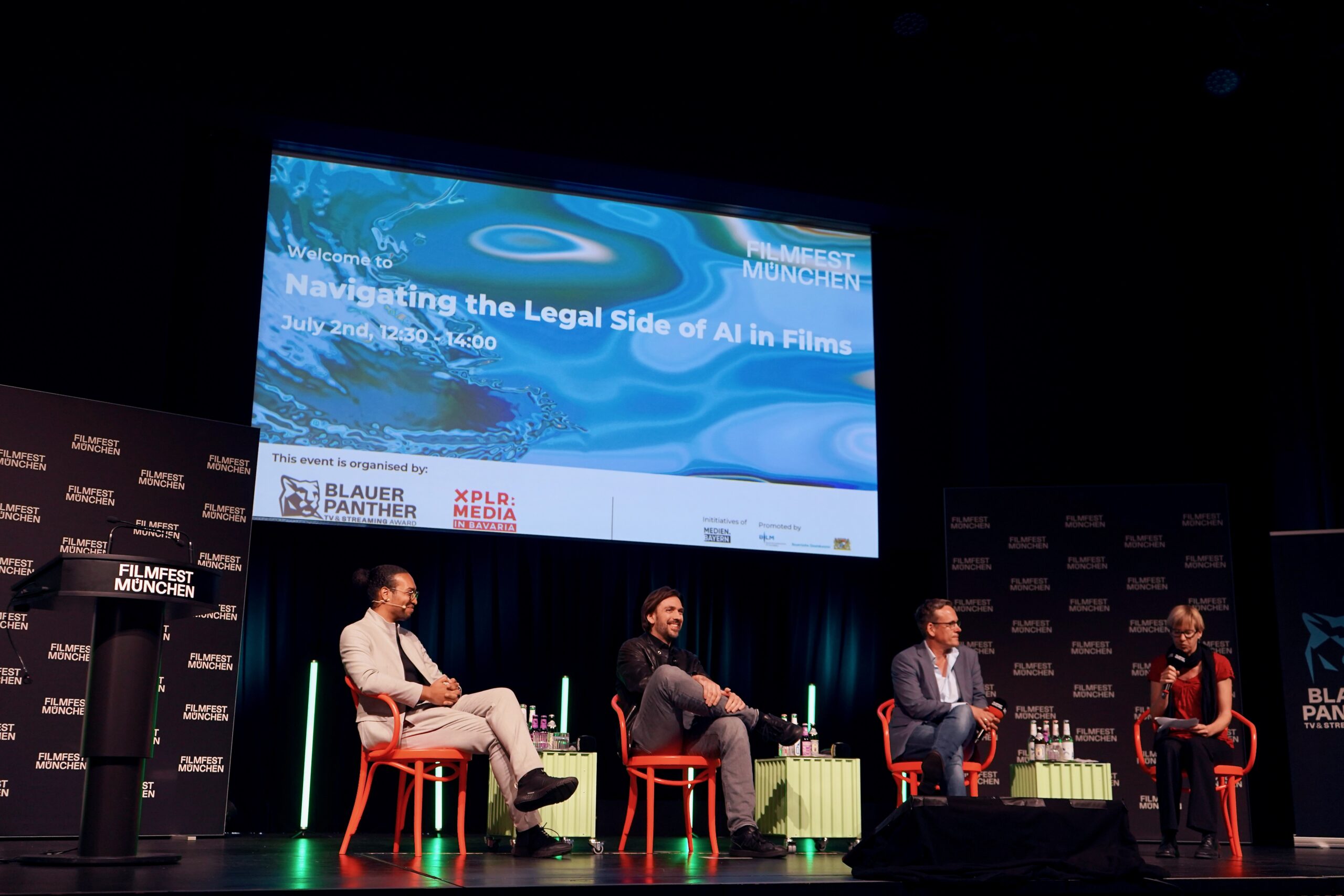AI in the film industry: "Real talent remains crucial"

A panel discussion at the Munich Film Festival 2024 sheds light on the opportunities and risks of using AI in the film industry. Experts see great potential, but also urge responsible use.
The use of AI in the film industry is raising hopes in the sector - and fears. This became clear during a panel discussion at the Munich Film Festival 2024, which was attended by representatives from production, technology, and law.
Max Wiedemann, Managing Director of Wiedemann & Berg Film und TV and co-founder of LEONINE Studios (one of the leading film production companies in Germany), reported on his company's initial experiences with AI tools. "We started by rolling out the basics," he explained.
This included the introduction of large language models and image generation models as well as the creation of AI guidelines and training for employees. According to Wiedemann, there have already been positive effects on productivity and work results.
At the same time, Wiedemann emphasized that AI-generated content does not yet reach the quality of classic film productions.
"It's getting better in terms of consistency. But in terms of the creative control a filmmaker needs to make these models a real alternative to traditional film production, there is still a lot of work to be done," he said.
"Not everyone who can create impressive images is a Christopher Nolan"
Wiedemann relies on collaboration between man and machine:
"Nevertheless, real talent remains crucial. Not everyone who can create impressive images is a Christopher Nolan. It still takes outstanding talent to create content that audiences really want to see. (...) There is room for exceptional talent. As a company, we are counting on it. Not every user of these tools is automatically an exceptional talent. Vision is still required. Studies prove it: The combination of human vision and AI tools puts the most horsepower on the road."
Jacques Alomo, Head of AI Innovation at youknow and founder of creamlabs AI, sees a challenge in the fact that large companies such as Adobe or OpenAI promise legal support for their enterprise customers, but ultimately the users themselves are responsible for the generated content, as the terms of use exclude many things.
Alomo pleads for the courage to experiment: "If we don't do it, others will."
He warns that in the end, only large corporations with access to lots of training data will be able to train and sell their models due to over-regulation.
"But we need an open source community so that anyone can download AI models and use them on their own device. This will bring innovation to the masses."
Lawyer Dr. Bahne Sievers (Fieldfisher) pointed out legal challenges, especially when using AI-generated images of real people. "The right to one's own image already exists. The question we need to answer now is: where is the line between too close and okay?" he explained. Sievers advised users to be careful: "If you think it looks like Tom Cruise, then it's probably too close."
"You can't stop progress"
With regard to possible job losses due to AI, Wiedemann was convinced that technological progress cannot be stopped.
"You can't stop progress. That has never worked in history," he said. At the same time, he emphasized the need to find solutions for the transition: "We should work together to make the cake bigger overall, instead of trying to keep it small out of fear."
The discussion mirrored similar debates in other industries: there seems to be no alternative to adapting AI, initial results are positive, but also raise questions about the future of their own work. Final answers have not yet been found here either; concerns about jobs and legal uncertainties remain. And OpenAI's Sora will probably further accelerate this transformation process in a few months' time. "Some jobs will disappear and new ones will be created," says Wiedemann. "There will be an intensive transition phase, this time not over generations, but over the course of a lifetime. Society must find ways to maximize productivity gains and distribute them fairly."
AI News Without the Hype – Curated by Humans
As a THE DECODER subscriber, you get ad-free reading, our weekly AI newsletter, the exclusive "AI Radar" Frontier Report 6× per year, access to comments, and our complete archive.
Subscribe nowAI news without the hype
Curated by humans.
- Over 20 percent launch discount.
- Read without distractions – no Google ads.
- Access to comments and community discussions.
- Weekly AI newsletter.
- 6 times a year: “AI Radar” – deep dives on key AI topics.
- Up to 25 % off on KI Pro online events.
- Access to our full ten-year archive.
- Get the latest AI news from The Decoder.